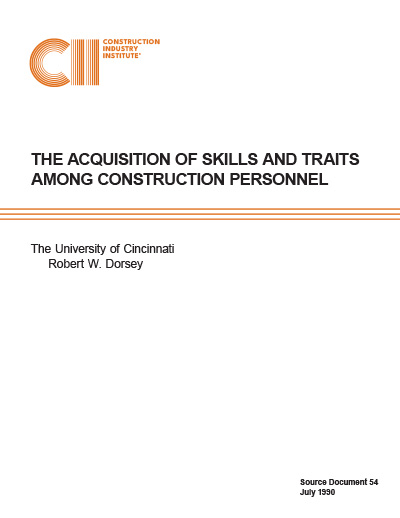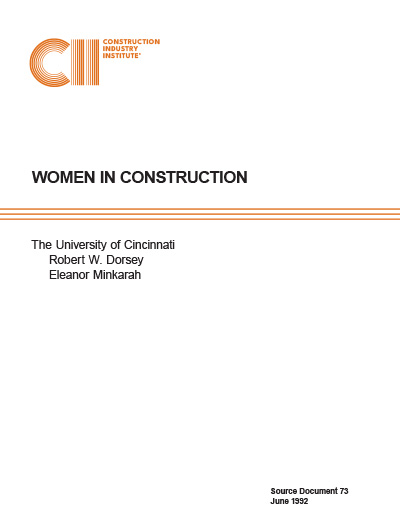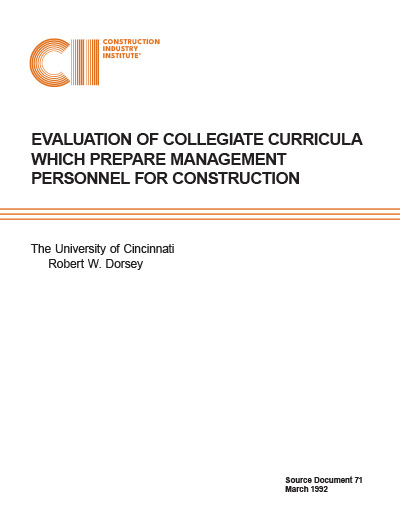
The Acquisition of Skills and Traits Among Construction Personnel
Publication No
SD-54
Type
Academic Document
Publication Date
Jul 01, 1990
Pages
102
Research Team
RT-014a
DOCUMENT DETAILS
Abstract
Key Findings
Filters & Tags
Abstract
Key inferences, implications, and recommendations (see Chapter 7) are drawn around the salient findings and include:
- The need for critical review of all formal education, with particular emphasis on management education for construction, since that appears to be a sector where some impact may be made. A comprehensive study is recommended of collegiate schools of construction.
- Continuing education in construction needs to be upgraded through the efforts of academic institutions, contractor associations and owner councils.
- Individual companies should become more formal in their employee development programs.
- Craft training needs serious improvement in both technical and communications skills. Cooperation is needed among user councils, contractor associations, public educational institutions and private entrepreneurs to provide a broad based attack on the problem of grossly inadequate training.
Key Findings
The broad perception of respondents to the RT-17 survey was that current education and training were not adequate to meet the needs of the construction industry. (SD-54, p. 19)
Education and training are a continuum, with upper level functions requiring roughly equal portions of formal education, special training and on-the-job experience; lower level functions benefit more from proportionally greater amounts of special training and on-the-job experience. The 11 identified construction roles are shown in the table below. (SD-54, p. 33, Table 4)
Filters & Tags
Knowledge Area
Project Phase
Project Function
Industry Group
Research Topic
Education and Training
Keywords
Training,
Curriculum,
Skills,
Construction Education,
Women recruitment,
Special Training,
Recruiting,
Retention,
rt14



